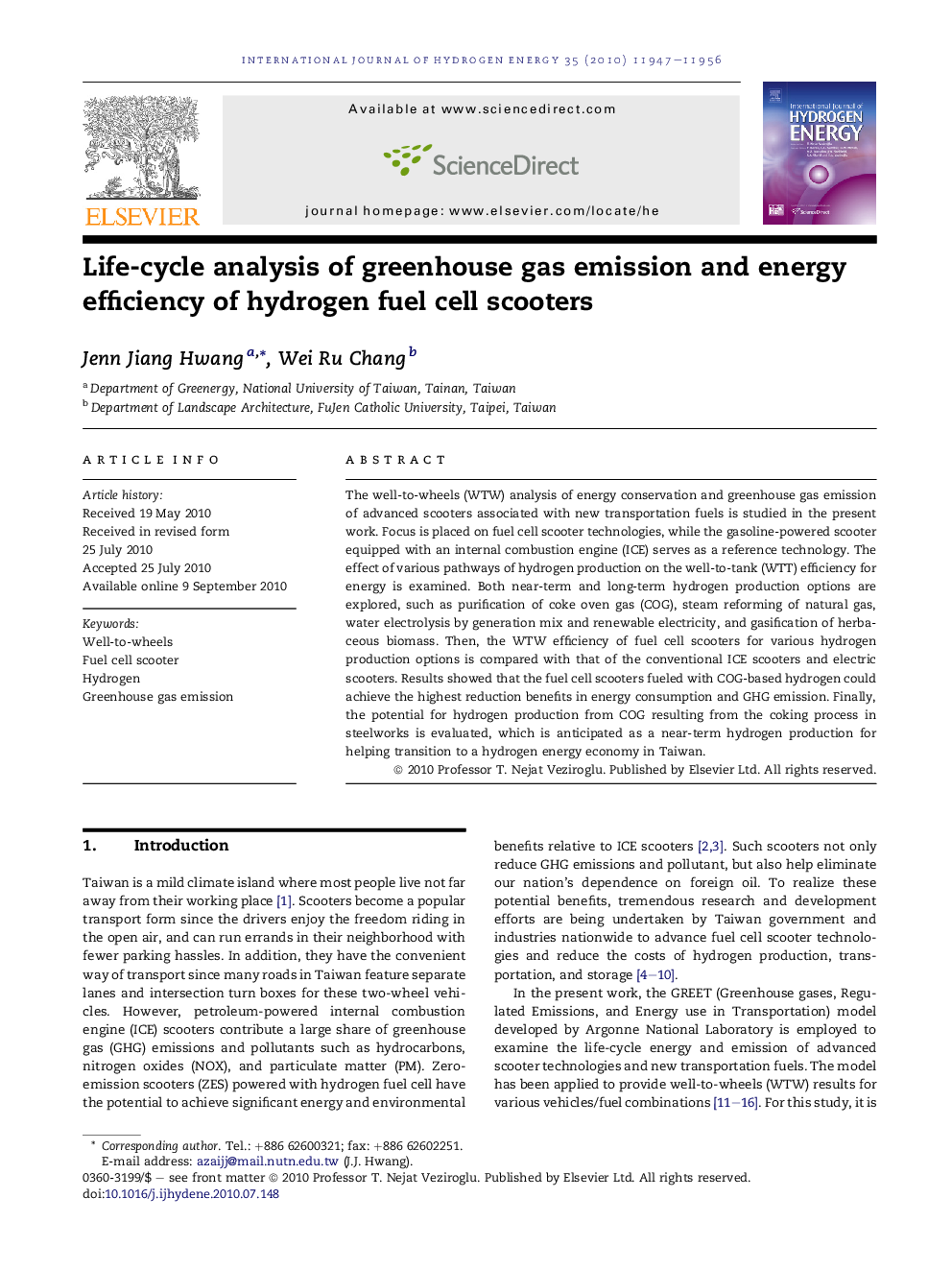| Article ID | Journal | Published Year | Pages | File Type |
|---|---|---|---|---|
| 1272563 | International Journal of Hydrogen Energy | 2010 | 10 Pages |
The well-to-wheels (WTW) analysis of energy conservation and greenhouse gas emission of advanced scooters associated with new transportation fuels is studied in the present work. Focus is placed on fuel cell scooter technologies, while the gasoline-powered scooter equipped with an internal combustion engine (ICE) serves as a reference technology. The effect of various pathways of hydrogen production on the well-to-tank (WTT) efficiency for energy is examined. Both near-term and long-term hydrogen production options are explored, such as purification of coke oven gas (COG), steam reforming of natural gas, water electrolysis by generation mix and renewable electricity, and gasification of herbaceous biomass. Then, the WTW efficiency of fuel cell scooters for various hydrogen production options is compared with that of the conventional ICE scooters and electric scooters. Results showed that the fuel cell scooters fueled with COG-based hydrogen could achieve the highest reduction benefits in energy consumption and GHG emission. Finally, the potential for hydrogen production from COG resulting from the coking process in steelworks is evaluated, which is anticipated as a near-term hydrogen production for helping transition to a hydrogen energy economy in Taiwan.
